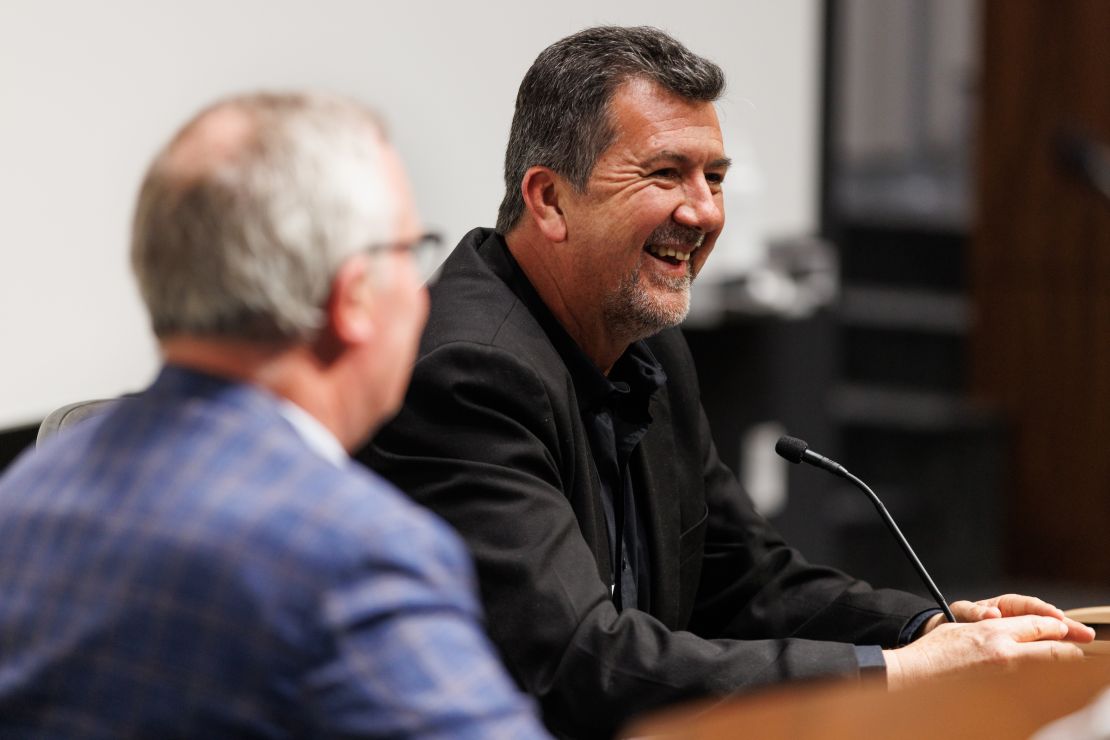Colombia’s Rodrigo Botero Garcia, who has worked for decades to preserve large swaths of land in the Amazon region, received Stanford University’s highest environmental prize, the Bright Award for Environmental Sustainability , during an October 8 lecture and ceremony at Stanford Law School (SLS). The event marked the 12th anniversary of the award, established by a gift from SLS alumnus and lifelong conservationist Raymond E. Bright, JD ’59, who passed away in 2011.
The Bright Award winner is selected from one of 10 rotating regions worldwide based on recommendations from regional consultants and a nominating committee composed of SLS faculty and students. The committee is led by Barton “Buzz” Thompson, Jr. , JD/MBA ’76 (BA ’72), the Robert E. Paradise professor in natural resources law and a professor at the Doerr School of Sustainability, among other roles at Stanford University.
Thompson welcomed the attendees, including several members of the Bright family. He underscored some of the defining characteristics of the Bright Award: “It is, we believe, the only environmental award that each year takes a particular region of the world and really takes a deep dive, looks at all the people working on sustainability issues in that particular region, and chooses the person who we think is making the greatest impact on sustainability,” Thompson said.
Another hallmark of the Bright Award, Thompson continued, was the fact that the committee that recommends the winner to the dean of the law school is composed primarily of students. “To me, this is incredibly important because it is our students who are going to be the next generation of problem solvers, the next generation of those who are going to lead the way towards sustainability.”
Negotiating with generals and guerillas
In his remarks, Botero discussed the success—and many challenges—of his work combating deforestation and promoting sustainable development, which he carries out under the umbrella of the Colombia-based NGO he founded in 2011, the Conservation and Sustainable Development Foundation. In addition to having helped to preserve millions of hectares of land, Botero advocates for local communities and indigenous land rights, and frequently negotiates with people who seek to exploit the Amazonian region, including armed rebels engaged in illegal mining, drug trafficking, and clear cutting.
Among Botero’s many accomplishments are several major expansions of Colombia’s Chiribiquete National Park, at the heart of the Colombian Amazon and a UNESCO World Cultural Heritage site.
Botero repeatedly touched on the importance of building trust in complex negotiations and the need to learn how to put oneself in the shoes of others, themes he also covered earlier in the day during a lunchtime discussion with SLS students, co-sponsored by SLS’s Environmental and Natural Resources Law and Policy Program and the Martin Daniel Gould Center for Conflict Resolution.
“Engaging with the local population in their daily lives, understanding their struggles and constraints, and observing their interactions with one another, provides a unique opportunity to establish connections with other levels of the state, business, and decision-making entities,” Botero said. “I had the opportunity to engage in discussions with generals of the republic in the > morning, and with guerrilla commanders in the afternoon. I was able to do so without difficulty and came to understand their world, perspectives, and the common ground between them. I made significant progress on key initiatives where there was a shared commitment to peace. However, I also encountered strong resistance from extreme wings of both parties who were reluctant to accept the potential failure of their approach and the associated risks of continued conflict and violence.”
Botero noted the dangers of environmental activism in Latin America: “Numerous environmental leaders in Colombia, the Amazon, Latin America and beyond, are facing threats to their safety and lives, with many of them being killed,” he said. “I believe that this moment is important to remember their contributions and to reaffirm my commitment to continuing their work, both for those who are still with us and for those who are not here, for the benefit of our children and future generations to create a better world.”

Following his remarks, Botero sat for an interview with Greg Dalton, founder and host of the Climate One broadcast on National Public Radio. The wide-ranging discussion addressed, among other topics, how to find “pathways to legitimacy” for people using the forest for criminal or other deleterious activities; balancing the roles of national laws and indigenous customs; and the potential for establishing legal rights for ecosystems.
Read More About Rodrigo Botero
Watch the full awards ceremony here:
About Stanford Law School
Stanford Law School is one of the nation’s leading institutions for legal scholarship and education. Its alumni are among the most influential decision makers in law, politics, business, and high technology. Faculty members argue before the Supreme Court, testify before Congress, produce outstanding legal scholarship and empirical analysis, and contribute regularly to the nation’s press as legal and policy experts. Stanford Law School has established a model for legal education that provides rigorous interdisciplinary training, hands-on experience, global perspective, and focus on public service, spearheading a movement for change.
For more information
This story was originally published by Stanford Law School.

